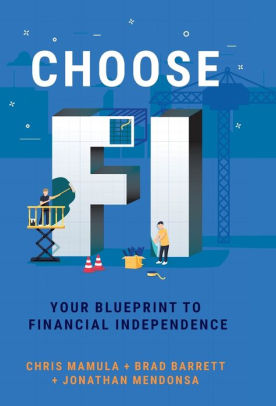“Dirtbag Millionaires”
 Throughout our adult lives, we’ve floated back and forth weekly between two parallel universes.
Throughout our adult lives, we’ve floated back and forth weekly between two parallel universes.
The “Dirtbags”
We are very active in a number of outdoor activities. Every weekend we would head out into our circle of friends involved in these activities. Most people we know are weekend warriors like ourselves.
However, there are a few that get the guts and take the plunge to live this lifestyle full time. They are the “dirtbags” (or winter version, “ski bums”). They choose to pass on most of the creature comforts of the “normal” American lifestyle. Instead they choose to pursue their passions; climbing, hiking, biking and skiing daily.
They take on odd jobs out of season or maybe try guiding to make enough money to scrape by. It is not uncommon for these folks to live out of their cars or bounce from couch to couch.
This lifestyle always fascinated us. These people are idealists. They are totally living for today. They’re fully committed to doing what they love in life.
They are also always one small step from disaster. Most of these people have little to no savings. Most eat whatever they can and drink crappy beer. They are often uninsured. An injury, an illness, a pregnancy or even a car breaking down could send things cascading over the edge.
Our little bit of financial success has made us a bit fat and lazy. We like to go home to a hot shower and a comfortable bed. We enjoy eating quality food and on occasion drinking good beer and wine. So we return every Monday to our parallel worlds.
The “Millionaires”
Every week, from Monday through Friday we go to work. Here we interact with professionals in a variety of different fields. They almost all live a similar lifestyle.
They are high wage earners, but most also are spenders. They dress well. They drive fancy cars. They live in expensive homes. They take extravagant vacations and some own second homes. Many are country club members. They subsidize their kids for prolonged periods of time with private schools and expensive colleges. Their careers define them.
We don’t know any of their financial details, but we do know that nearly all work until the traditional 65 years old retirement date or even beyond. I’m sure at least some are true millionaires or even multi-millionaires. They think they don’t have enough money to support them if they didn’t work. Because of their spending patterns, they’re probably right.
Few seem truly happy or fulfilled. We always knew we didn’t want this lifestyle.
The Worst of Both Worlds
So we got to talking. We know many people who combine the worst of both groups. They get caught up in our consumer culture and spend excessively, trying to buy their way to happiness.
They end up living with little financial security, always one step from disaster (the downside of being a “dirtbag”). At the same time, they spend their whole lives, 40, 50 sometimes 60 hours per week for 40 to 50 years, fueling this lifestyle by working in professional jobs that offer them limited fulfillment or satisfaction in life (the downside of the professional lifestyle).
“Dirtbag Millionaires”
What if we could flip the script? What if we could find a better way, combining the best of both worlds. I even coined a term for this, “Dirtbag Millionaires”.
We wouldn’t be true “dirtbags”. We wouldn’t necessarily need to be true “millionaires” to support our simple lifestyle. But we would try to embody the best of both groups.
We would work more like the professionals for a short time, but live more like the dirtbags. We would avoid the unnecessary spending that has come to be the norm for the average American. In doing so, we could live well below our means.
We would adopt the “dirtbag” mentality of spending as much of our time and energy as possible on the things most important to us. These things were initially developing our relationship while seeking adventure, traveling, and achieving financial independence. More recently we have added our daughter to the top of this list.
At the same time, we’d work hard at our professional jobs, earning far more than we needed for our lifestyle. We would avoid as many of the typical status items as possible, instead putting all extra money toward appreciating assets that would support us for the rest of our lives.
How It Works
We decided first to pay off our debt (school loans and a car loan) as quickly as possible and avoid all future debt except for a reasonable mortgage. We’d limit wasteful spending on things not important to making our lives better.
We have never financed another car. We avoided buying expensive shoes, clothes and accessories. We developed a habit of not exchanging Christmas or birthday presents. We avoided getting caught up in having the newest and best gadgets and electronics.
I have no jewelry except the same watch I bought in college and my wedding ring. The Mrs. wears very little jewelry and for special occasions has a few pieces of cheap costume jewelry and some old family pieces.
My wife cuts my hair with a pair of clippers we got from Wal-Mart. She gets her hair cut about once every 1-2 years to donate to “Locks of Love”. She has never had professional manicures, pedicures, etc.
While traveling we live like the dirtbags, sleeping in tents, cars, or on friend’s couches as much as possible. Instead of throwing away money and wasting time in fancy hotels, we spend as much of our time as possible experiencing the places we visit.
Each of these things, while fairly insignificant on their own, began to add up and then compound. We found that prioritizing in this way, we were spending much less than our professional peers.
Because we were doing the things we truly wanted, we never felt like we were sacrificing anything. In fact, because we avoid this waste we live even better than most.
We have a really nice home. We eat and drink what we want. We have traveled extensively domestically and internationally. Our active lifestyle provides inexpensive activity and helps us maintain excellent health.
I have negotiated away pay increases for increased vacation time. My wife has already cut back to part-time work. This gives us more time than most for our child while having time to maintain an active and healthy relationship. We’ll be able to retire when others are trying to figure out how to pay off school loans or make a dent into the principle on their mortgage.
Why It Works
There is a big difference between living your values while avoiding waste and making great sacrifices. Understanding this is the first key to achieving early financial independence and being able to retire early.
Most people think achieving financial independence involves great sacrifice to simply live within their means. They don’t bother to even try. They think it is not possible.
The option of early retirement doesn’t even enter the minds of most people. The popular notion is that it is hard to make ends meet, regardless of income, and many simply accept this as fact.
Most people ignore the waste in their lives on a daily basis. They look at budgeting and financial planning like going on a crash diet, which works for a short time but is not sustainable. Nothing could be further from the truth.
Any middle class American could easily replicate what we’re doing by making similar decisions. By avoiding the mistakes we’ve made or living less extravagantly than us, you could even do it in a shorter amount of time and/or do it with considerably less income. There are also many people who earn more than we do and could easily follow our path while still leading fairly lavish lifestyles.
And what about those of you who think you can’t do it because you earn less than us, started with more debt, or _____________.(Fill in you own excuse here) You simply have to work (for a while) like the “millionaires” while learning to think and live like a “dirtbag”. Keep reading, we’ll show you how.
*Thanks for reading. If you enjoyed this content, you can find my current writing at Can I Retire Yet?. Enter your email below to join our mailing list and be alerted when new content is published.



Really great article, I feel exactly the same way!
People often forget there’s no such thing as pure black and pure white: you can save a lot while still maintaining a decent lifestyle. Failing to save more is indeed often the result of taking the crash diet approach, rather than slowly cutting away unnecessary expenses. Great for you guys to have found your happy medium!
Looking forward to future writing, keep it up!
NMW
Thanks for the feedback!
You’re dead on in your comment. Life is full of shades of gray and making trade-offs. There is plenty of waste and inefficiency in most people’s lives. Consistently working to eliminate it can allow you to live a very nice lifestyle with plenty left to save for the future, IF you make smart choices.
EE
Congratulations on reaching an understanding of financial independence - and a huge Thank You for sharing your stories! I admire the time you’re taking to educate others. I recently wrote a book that complements many of the ideas you’re expressing in your blog. If you’re interested in reading it (and possibly reviewing it on your blog), I’ll gladly mail you a free copy. I can also give you an extra free copy to give away to your readers. The book is called Outsmarting the System. Throughout the book, I share the lessons I learned as an IRS Agent and teach people how to outsmart the system in the same ways as the rich. Let me know if you’re interested. Keep up the good work!
Hey Tony,
Thanks for the comment.
I just checked out your website and sent a private response. Good to have you on board. I hope to hear from you and receive more feedback in the future. Tax planning is one area that we are looking to explore in detail in the future and would love to hear your points of view.
Cheers,
EE
Those are interesting points. Great article all in all! 🙂
Thanks for the feedback!
Could not agree more with this article. It just makes such logical sense to maximize income and keep living expenses as low as possible. Seems like the only sure way to live a life of freedom with the added positive of potential early retirement.
Really dig it!
P.s Any tips on increasing income? Do you have any side projects that help you with any extra income?
Until this past year, we have focused on earned income. We have done this by each earning multiple degrees and plain old hard work in our chosen fields. Our plan currently is to continue in our current jobs until we accumulate investments 20-25X our annual expenses (projected in about 2 years). Over those 2 years we are working on developing multiple streams of income that will support us in retirement. This includes learning as much as possible to manage our own paper investments effectively. We are also developing side hustles to help us earn some extra money in the short term and develop sustained income long term to alleviate stress on our investments when we “retire”. We will be expanding on all of these ideas over the coming weeks and months. We hope you continue to follow and join in the discussion!
Thanks for the positive feedback.
Cheers!
EE
Wow, thanks for the in depth insight into your plan. I am currently doing my best to develop side-projects, as a direction and opportunity for a higher income job is unclear for me. I also believe in old fashioned hard work and slowly up-skilling to provide more value to the market. As I am still young, at 25yrs, I am confident that by 30 I should have at least 10-15x annual expenses in savings and investments. Learning to invest properly with solid control is something I also value highly! It seems it is one of the most confusing areas of study! Thanks again, I will be sticking around and enjoying your blog 🙂
It is great to have you. I wish I would have had your wisdom to be looking to learn this kind of stuff when I was 25. I may have been writing a blog about how to retire at 30 instead of 40;)
Haha, yes I do feel fortunate that I have been put on this path so early in life! 🙂 It is amazing to be able to get such great support from blogs like this on the journey! P.s Check out my blog if you get a chance. I don’t write about Personal Finance, but you may enjoy a read anyway. Even if I am only 25 🙂
I agree with a lot of this: however I truly am addicted to some of the finer things in life! I love to eat out a big meal for lunch without considering price, I also don’t mind driving a nice car.
After years of working hard for other people I was un appreciated and they did not give me time enough to enjoy lunch! I now work for myself and have two employees that make money for me! I call it a get rich slow business. Opening an insurance agency is not glamorous but after 6 years I can come and go as I please. I cannot be fired, I have the time and money for lunch and a round of golf or two! I also have an asset that grows every year. In 10 years I should be able to retire on my catamaran and sail away all while enjoying semi retirement at work.
Entrepreneurs are able to break out of the box of earning x and being fired eventually for no reason.
Our way is certainly not the only way. In fact, our way of slowly building paper assets as our primary source of retirement income is probably the slowest and lowest return on investment way to do it. We are looking at developing alternative methods of passive income to support us in retirement. A business that could support us while we gradually left the actual daily work to others actually sounds like a pretty glamorous option in my book!
Cheers!
EE
Thank you for sharing your experience. If we follow your advice, then America will be free from boom and bust. We will live our life with joy.
Thanks a million.
“I have negotiated away pay increases for increased vacation time.” Well played! That is an excellent strategy, one that Juliet B. Schor suggests in her book “The Overworked American”. I applaud you for this . So few people think this is even an option.
Thanks. Many people say that their time is more valuable than their money, but few actually put their money where their mouth is. As stated in the post, it is all about choosing to live your values.
I’m interested to hear more about the 20-25x annual expenses. How old are you? Do you think that would be feasible without other sources of income and full retirement?
I am thinking about my own situation. Me and my wife and little guy(1y.o) have about $225 in IRAs, maybe $20 in cash. We have a $150k house we bought last year and owe $90 on it and have $30 in student debt. House and debt will be done in about 1.25 more years barring any unforeseen circumstances. So, at that time we are looking to move to a new place, likely paying cash for it.
So, let’s just say for example, we have $300k and no debt and no house payment, do you think it would be reasonable to bail on the startup tech job and work in the mountains or only pursuing things that fulfill me and I am passionate about? What about the IRA problem? I can’t really use that money without the early withdrawal fees, right?
Would love to hear more about how much is enough!!
Thanks my ninjas!!
Thanks for the comment/questions.
As for expanding on the 20-25X expenses, I’m going to ask you read on to what I’ve already written and then continue to follow because I’m working on writing a lot on this topic in the next few weeks as this is the cornerstone of our early retirement planning. I am currently 38 and my wife is 36. The 20-25X annual expenses is based on the 4% rule, which is based on a 30 year retirement assumption so I would not be comfortable betting everything on that. I do think it is a great starting point for planning. Again, stick with me and we’ll expand on our plans there also.
A few comments on your personal situation. I think you’re very smart paying off debt quickly, especially with current market conditions. To know if you have “enough”, you need to know how much you currently spend and project spending in the future to figure that out. Otherwise, you’re only looking at one side of the equation.
Finally, the IRA problem. While it does pose some problems, we still max out all tax advantaged savings before doing anything else because the benefits are greater than the drawbacks in my mind. Here is one strategy for dealing with that in the future that is worth a look. http://jlcollinsnh.com/2013/12/05/stocks-part-xx-early-retirement-withdrawal-strategies-and-roth-conversion-ladders-from-a-mad-fientist/
Hope that helps.
Okay, now we’re super glad we found you. This is pretty much exactly our vision, and we love your term for it! We live in a beautiful place with endless opportunity to ski, climb, bike, paddle, hike, etc., and we can’t wait to do that stuff basically full-time, but with the financial security that we’ve been working hard to build. Or to camp out of a van for months at a time. Instead of having to be weekend warriors, missing the weekday powder and the uncrowded weekday trails.
I realize I am late to the conversation, however, I stumbled upon your post this morning. I really appreciate it. There are so many people who get caught up in the rat race and who are pushing the limits so they can afford a certain life style. Yet, like you posted, are they truly happy? When I take a look at my own personal life, and what makes me happy, those things are usually not things. I enjoy spending time with my family, taking walks/hikes, trying new foods, reading, dancing. All of those things bring me a lot more joy than a $200 pair of jeans or the new designer bag. I get my values on money do not align with a lot of people, so maybe I am missing out on something that they achieve from high amounts of spending, or is it the other way around? It truly is hard to say one way is better than the other way, given everyone’s situation/wants/needs are different.
Better late than never. Glad to have your perspective.
I agree that it is of no good to pass judgement on others behaviors and values that are different than your own. However, I think it is well worth your time to examine what your own values and behaviors are and why you have them.
For myself, there is clearly one way that is better than the other. That is to focus my spending on things and experiences that bring value to my life now or to invest my money in a way that will give more freedom in the future. I do not doubt myself just because my lifestyle and values are not mainstream. Unfortunately, mainstream is mainstream because we are bombarded by advertising and pop culture from the time we are very young which tells us that everyone lives a certain way and you should too so you fit in. That does not mean that it has to be that way!